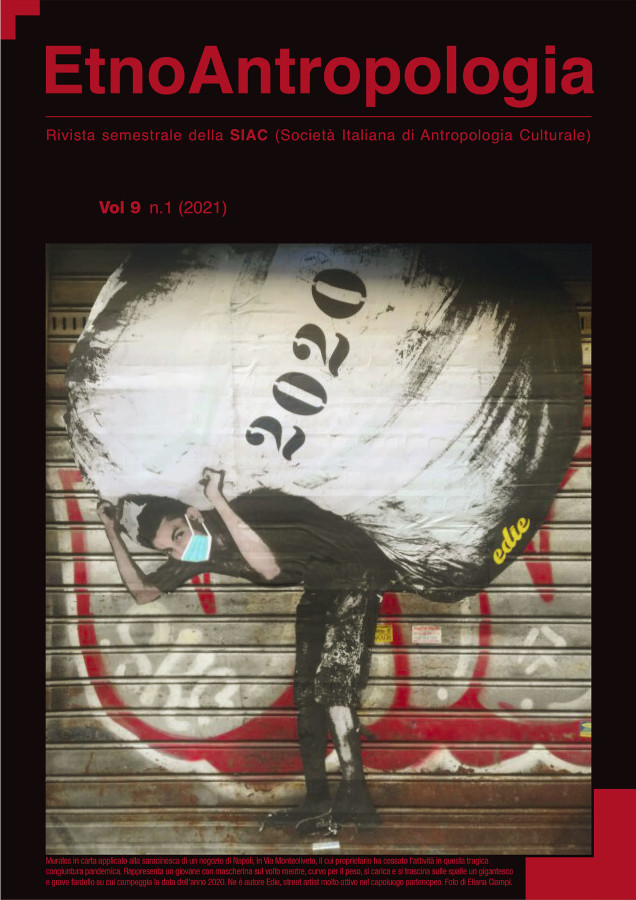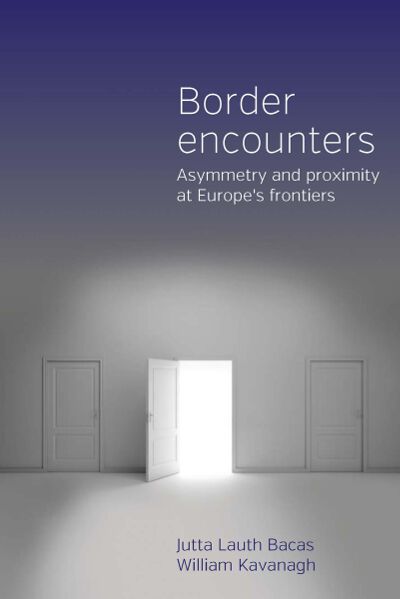MedNet Publications
 NEW:
NEW:
The Future(s) of the Mediterraneans: Between Uncertainty and Resilience
Theme section edited by Carlo Capello, Panas Karampampas and Jutta Lauth Bacas.
In: EtnoAntropologia Vol. 9, No 1, 2021
CONTENT
The Future(s) of the Mediterraneans: Between Uncertainty and Resilience
Carlo Capello, Panas Karampampas, Jutta Lauth Bacas
Hosting Futures. Dispossession and Hospitality in Contemporary Portugal
Giacomo Pozzi
In Search of a Safe Port. The Marian Cult on Lampedusa amid Mass Tourism and the Migrant Crisis
Francesco Vietti
Undutiful daughters claiming their futures and the uncertainties of non-marital love in Casablanca
Irene Capelli
Shaping the future(s). Civil society and itineraries of personal commitment in Tunisian democratic transition
Giovanni Cordova
Uncanny companions: kinship, activism, and public health as interdependent modalities of care provision under Greek austerity
Andreas Streinzer
Afterword. Vertiginous life and the Inconstancy of Becoming in the Mediterranean
Daniel M. Knight
To access the contributions of Giacomo Pozzi, Francesco Vietti, Irene Capelli, Giovanni Cordova, Andreas Streinzer and the Afterword of Daniel M. Knight, please click here.
The Editors' Introduction of Carlo Capello, Panas Karampampas and Jutta Lauth Bacas can be downloaded here
Special Issue of the journal Ethnologia Europa (Vol 48:1, 2018) with title: Practices of Resistance
Jutta Lauth Bacas (coordinator of the EASA MedNet network) and Marion Näser-Lather (University of Marburg) acted as guest editors of a Special Issue of the journal Ethnologia Europaea (Vol 48:1, 2018) with the title: Practices of Resistance. In this special issue fresh anthropological research is presented on localized practices of resistance by protest groups, solidarity initiatives and cultural projects arisen in Mediterranean countries in wake of the crisis after 2008. Based on ethnological and anthropological fieldwork in France, Slovenia, Italy and Greece, the volume (48:1, 2018) offers insight into the media-based protest against the commodification of the so-called Panier, a historic harbour-district of Marseille (Philip Cartelli), into urban gardening in Ljubljana as a practice opposing the growing neoliberal market economy (Saša Poljak Istenič), and the movement Genuino Clandestino, a solidarity network of small-scale farmers in Italy (Alexander Koensler). Three more case studies focus on social movements in Greece: a solidarity network in Volos, where citizens developed an alternative exchange and trading system (Andreas Streinzer); grassroots mobilizations as resistant practices in the inner urban neighbourhood of Exarchia/Athens (Monia Cappuccini); and finally rural solidarity networks on the Peloponnese peninsula (James Verinis). A comparative discussion on similarities and differences in Mediterranean protest movements (Jutta Lauth Bacas and Marion Näser-Lather) identifies underlying common features in these clearly different practices of protest: among others, the major role of face-to-face interaction and mutual trust.
 The paperback edition of the volume Border Encounters: Asymmetry and Proximity at Europe’s Frontiers, edited by Jutta Lauth Bacas and William Kavanagh, was published by Berghahn Books in March 2016 (ISBN 978-1-78533-219-7; also available as eBook). The volume presents a series of eleven European case studies on how, and to what extent, the border context influences the social relations between people at a political frontier. All of these are set in the context of rapidly evolving European borders, be it in the aftermath of the fall of the Soviet Union or due to the expansion and strengthening of the EU. The collection of case studies has grown out of a MedNet workshop held by William Kavanagh and Jutta Lauth Bacas at the 8th EASA Biennial Conference in Vienna.
The paperback edition of the volume Border Encounters: Asymmetry and Proximity at Europe’s Frontiers, edited by Jutta Lauth Bacas and William Kavanagh, was published by Berghahn Books in March 2016 (ISBN 978-1-78533-219-7; also available as eBook). The volume presents a series of eleven European case studies on how, and to what extent, the border context influences the social relations between people at a political frontier. All of these are set in the context of rapidly evolving European borders, be it in the aftermath of the fall of the Soviet Union or due to the expansion and strengthening of the EU. The collection of case studies has grown out of a MedNet workshop held by William Kavanagh and Jutta Lauth Bacas at the 8th EASA Biennial Conference in Vienna.
In 2014, the Journal of Mediterranean Studies (University of Malta), presented a Special Issue (Volume 22, No. 2) with the title Reflecting Anthropology in the Mediterranean, which was edited by William Kavanagh, Jutta Lauth Bacas, and Paul Clough. Based on papers presented at a former MedNet workshop at the Ca’ Foscari University in Venice, contributions to the special issue draw on major categories and discourse in the anthropology of the Mediterranean and expand on their relevance for future anthropological endeavours.
The reflections presented in this new issue of the Journal of Mediterranean Studies (Vol. 22, No. 2) reveal an unexpected continuity in the discursive field of Mediterranean anthropology. The concepts of honour, patronage, familism (or family networks) and connectivity (or border crossings), to name a few, have been understood as central to the discipline since its very beginning. After a critical turn in the anthropology of the Mediterranean in the 1980s and 1990s, when some of these basic concepts had been criticized as biased and reproducing cultural essentialism, Mediterraneanists working in the area today reconsider and re-evaluate these earlier criticisms anew.
The result is of course not a turn back to culturalism, but a new contextualization of those basic categories as useful instruments for better understanding changing conditions and circumstances in specific field sites. And as the contributors to this new issue of JMS (Vol. 22, 2) show, concepts of honour, patronage, familism (or family networks) turn out not to have lost their explanatory power. Having undergone a critical reflection, re-evaluation and contextualization, they still function as analytically relevant tools for studying what we understand as the multiple and fractured realities of the Mediterranean today.
In times of turmoil in many countries surrounding the blue ‘corrupting sea’, this close understanding of complex realities based on meticulous and extended fieldwork seems to be more needed than ever.






